Top News
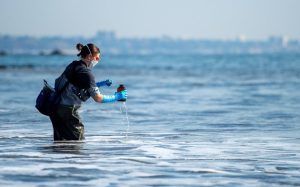
SCCWRP coordinates post-fire aquatic monitoring network
SCCWRP has helped bring together more than two dozen organizations to form a water-quality monitoring network that is tracking how pollution and debris from the Palisades and Eaton fires are ... More
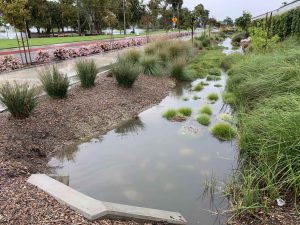
Index scoring tool for rating BMP performance released
SCCWRP has developed a scoring tool that quantifies the degree to which structural BMPs (best management practices) contribute to improving the health of downstream aquatic ecosystems – a novel method ... More
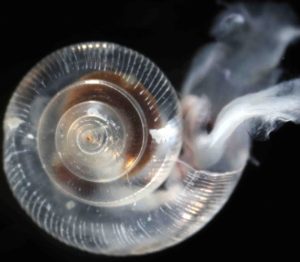
OAH modeling stakeholders helping SCCWRP prioritize expert panel’s recommendations
A stakeholder steering committee that oversaw an independent expert review of a suite of coastal ocean acidification and hypoxia (OAH) modeling tools has begun deliberating about how best to implement ... More
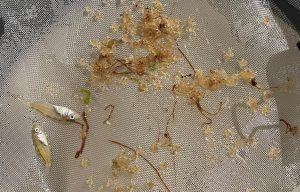
Workshop examines how to use eDNA-based method to monitor OA’s biological effects
A group of 15 scientific experts has developed a coordinated West Coast plan for using environmental DNA (eDNA) to track the effects of ocean acidification (OA) on vulnerable shell-forming organisms ... More

Method developed to measure street sweeping’s effectiveness
SCCWRP and its partners have developed a novel method for quantifying the effectiveness of routine street sweeping in removing contaminants that would otherwise enter storm drains and contribute to runoff ... More
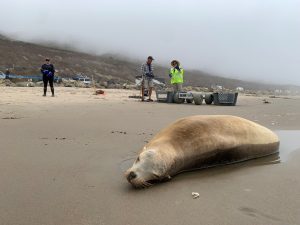
Effort launched to expand, formalize HABs monitoring in coastal waters
SCCWRP and its partners are launching an effort to expand and formalize Southern California’s capacity to collect monitoring data on toxin-producing harmful algal blooms (HABs) in coastal waters – an ... More
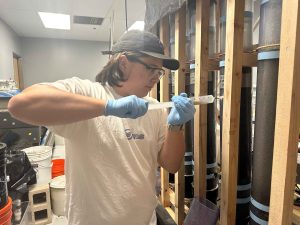
Modeling phase launched in effort to open ‘black box’ of BMP mechanistic processes
SCCWRP and its partners have begun working to model the mechanistic inner processes by which a ubiquitous class of stormwater BMPs known as biofiltration systems removes pollutants from runoff – ... More
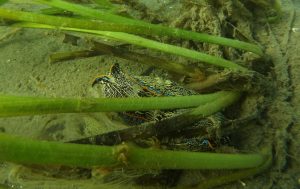
Bight ’23 regional survey assessing ecological health of eelgrass beds for first time
The Southern California Bight 2023 Regional Monitoring Program has completed field sampling for a first-of-its-kind multiagency survey evaluating the health of the region’s eelgrass beds based on their ecological functioning ... More

Expert panel completes review of coastal OAH modeling tools
An international panel of scientific experts has completed an independent review of a set of computer modeling tools designed to predict how land-based coastal discharges are influencing ocean water quality, ... More
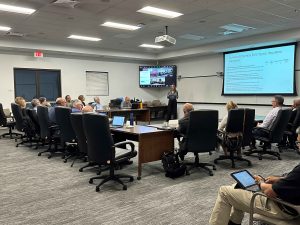
SMC develops stormwater research priorities for next five years
The Southern California Stormwater Monitoring Coalition (SMC) has launched a research planning process to establish its strategic directions over the next five years, beginning with inviting an expert advisory panel ... More
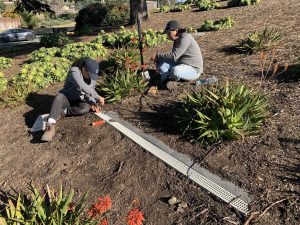
Study finds replacing spray irrigation with drip irrigation can eliminate runoff
SCCWRP and the County of San Diego have completed a three-year study that found that replacing spray-irrigated turf with drip irrigation and drought-tolerant landscaping can reduce or eliminate the volumes ... More
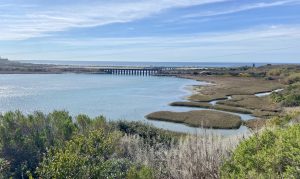
Sentinel network completed to support planned wetlands monitoring program
SCCWRP and its partners have completed the first major component of a planned coastal wetland monitoring program for Southern California – a milestone that brings coastal managers one step closer ... More
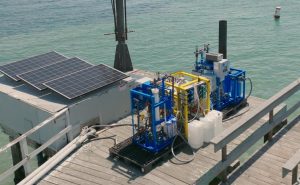
Workshop clarifies path for evaluating mCDR environmental effects in California
A two-day workshop at SCCWRP that explored the implications of piloting marine carbon dioxide removal (mCDR) technologies in California coastal waters has helped bring clarity to the technical and regulatory ... More
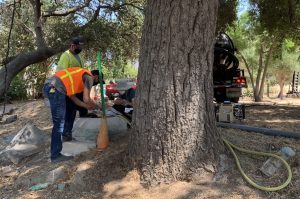
Study quantifies human fecal pollution in urban stormwater
SCCWRP and its partners have completed a sweeping, five-year investigation quantifying the relative contributions of six major sources of human fecal contamination in the San Diego River watershed during wet ... More
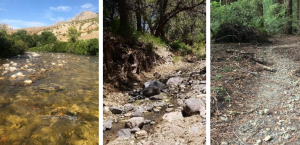
Tools being finalized to help determine whether streams subject to Clean Water Act
The U.S. Environmental Protection Agency and the U.S. Army Corps of Engineers are preparing to release final versions of flow classification tools intended to help watershed managers determine which streams ... More
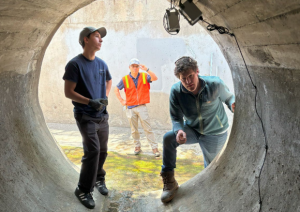
Study investigates using low-cost sensors to automate detection of illicit discharges
SCCWRP and Orange County Public Works have launched a two-year study investigating the feasibility and logistics of using low-cost field sensors to automate detection of illicit pollutant discharges that can ... More
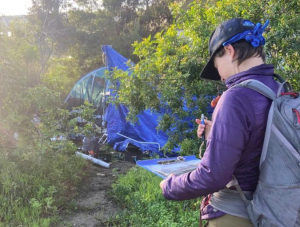
Study quantifies fecal pollution from unhoused populations
SCCWRP and its partners have completed a first-of-its-kind study estimating the degree to which people experiencing homelessness along the San Diego River contribute to fecal contamination downstream – one in ... More
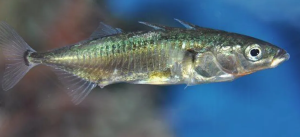
Panel convened to evaluate nature-based solutions for managing stream temperature
SCCWRP and its partners have convened a panel of scientific experts to investigate how to optimally incorporate natural features and processes into stream management to help offset increased temperatures from ... More
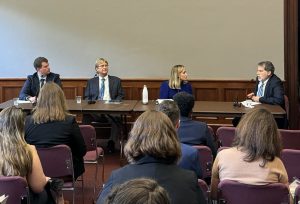
California preparing to implement national eDNA monitoring strategy
SCCWRP and its partners are preparing to lead California in implementing a White House-led national science strategy being released in June that is intended to bring standardization and consistency to ... More
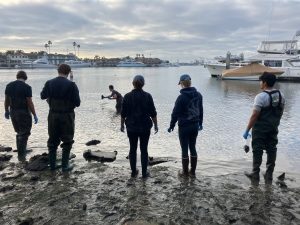
Bight ’23 shellfish study to benefit 4 study elements
The 2023 cycle of the Southern California Bight Regional Monitoring Program has launched a year-long investigation to comprehensively track the accumulation of multiple different types of contaminants in shellfish – ... More

SMC studies being used to investigate BMPs’ potential to remove microplastics in runoff
SCCWRP and its partners have initiated a pair of studies exploring the potential of different types of stormwater BMPs to reduce microplastics pollution in runoff – with both studies leveraging ... More
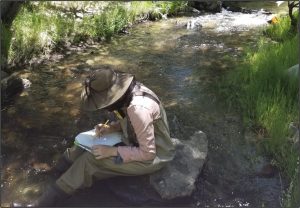
Effort launched to develop protective assessment tools for California streams
SCCWRP and its partners have begun developing a suite of tools to help managers identify the specific stressors that present significant ecological risks to California streams that are in good ... More
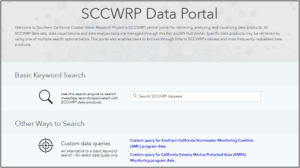
New SCCWRP data portal enhances access to most-requested data products
SCCWRP has publicly unveiled a web-based data portal that provides centralized access to millions of environmental data points and cutting-edge data analysis tools – the culmination of a years-long effort ... More

Expert panel convened to review OAH modeling tools
An independent panel of scientific experts has been convened to review a set of modeling tools that predicts the ecological consequences of intensifying ocean acidification and hypoxia (OAH) in California ... More
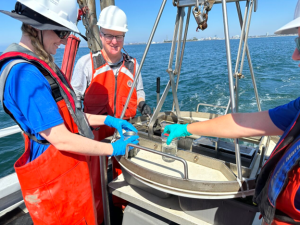
Field sampling completed for Bight ’23 Sediment Quality element
The Southern California Bight 2023 Regional Monitoring Program has completed field sampling for its signature Sediment Quality study element – a coordinated, three-month field effort that lays the foundation for ... More
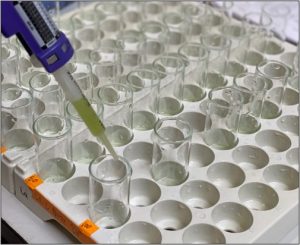
Quality-assurance recommendations developed to improve Ceriodaphnia toxicity test
An expert science panel has developed best-practice recommendations for improving the quality and consistency of a toxicity test commonly used in California to monitor the water quality of treated wastewater ... More
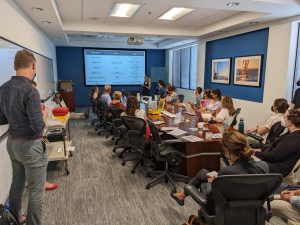
SCCWRP member agencies to help inform development of national eDNA strategy
CTAG will host an all-day workshop next month to identify constraints and challenges associated with incorporating environmental DNA (eDNA) methods into aquatic monitoring programs nationwide – the latest in a ... More
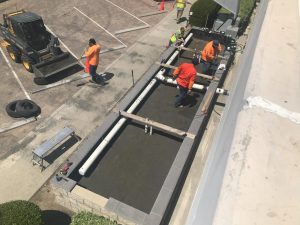
Mechanistic study to open stormwater BMP ‘black box’
SCCWRP and its partners have launched a three-year study to characterize the mechanistic inner processes by which a ubiquitous class of stormwater BMPs (best management practices) removes common types of stormwater ... More
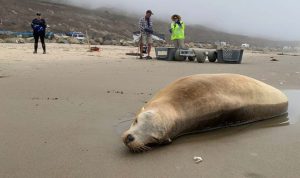
Rapid-response HABs monitoring effort to help illuminate how toxin-producing blooms affect marine mammals
SCCWRP and its partners have helped mobilize and coordinate a rapid-response effort to collect offshore field sampling data on toxin-producing harmful algal blooms (HABs) in Southern California coastal waters, following ... More

Coastal managers chart path forward for promoting optimized restoration and assessment of eelgrass beds
The eelgrass habitat suitability model – described in a SCCWRP technical report published in July – will consist of a mechanistic model for predicting eelgrass growth along Southern California’s coast. ... More

Evaluation of carbon dioxide removal technology to shed light on possible solution for climate change
SCCWRP and its partners have begun working to evaluate the effectiveness of a technology designed to remove dissolved carbon dioxide directly from coastal waters – an investigation that will shed ... More
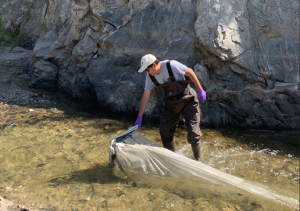
Effort launched to standardize microplastics sampling methods
A group of international microplastics experts convened by SCCWRP has begun working to standardize the methods that California is using to collect environmental samples in preparation for measuring their microplastics ... More
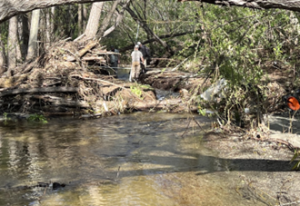
Modeling tool developed to predict biological consequences of freshwater salinization
SCCWRP and its partners have developed a modeling tool for predicting how aquatic life becomes increasingly stressed as levels of chloride, sulfate and other ions rise in freshwater ecosystems – ... More
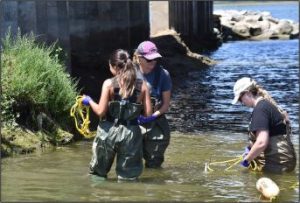
Second phase launched for Newport Bay study revisiting shellfish water-quality standard
SCCWRP and its partners have launched the second and final phase of a study examining whether an existing water-quality standard designed to protect the health of people who consume shellfish ... More
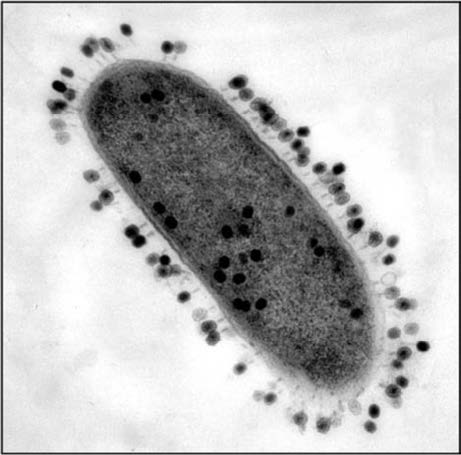
Study probes utility of virus method for fecal detection
The Southern California Bight 2018 Regional Monitoring Program has completed a study that found that an alternative, virus-based method for tracking fecal contamination can be used as an effective complement ... More
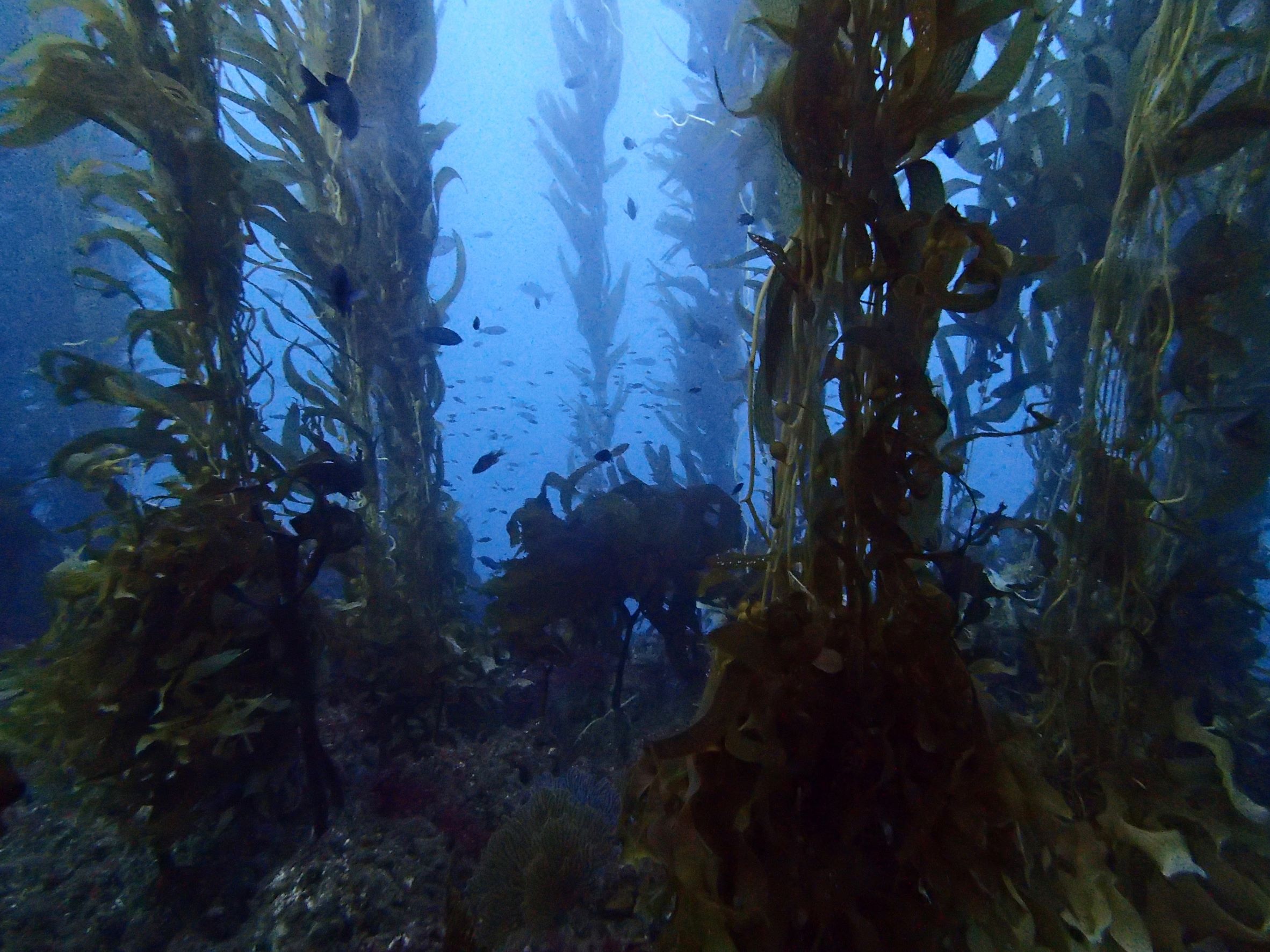
Initial phase of ocean health report card developed for California managers
The California Ocean Protection Council (OPC) has released the first phase of a multi-component ocean health report card designed to provide managers and policymakers with comprehensive annual snapshots about the ... More
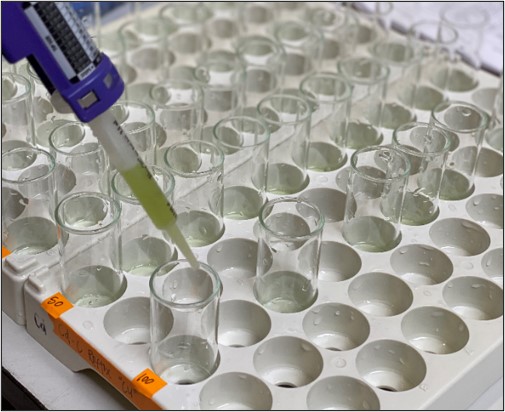
Study probing variability in Ceriodaphnia toxicity testing results enters final phase
An ongoing, SCCWRP-facilitated study probing why California laboratories have been unable to produce consistent results with a toxicity test commonly used to evaluate discharge water quality has ruled out an ... More
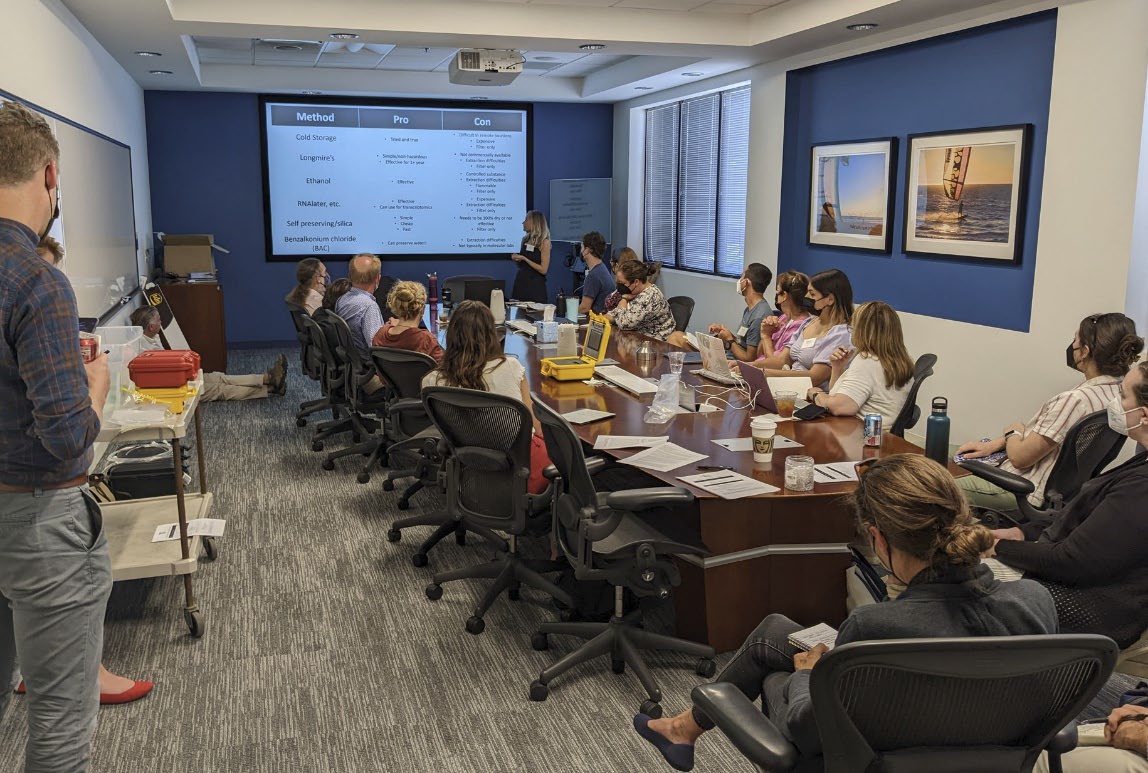
Workshop works to transition eDNA methods to managers
More than 300 researchers and environmental managers gathered at SCCWRP and online during a national scientific workshop in September to coordinate and advance strategies for transitioning DNA-based methods for identifying ... More
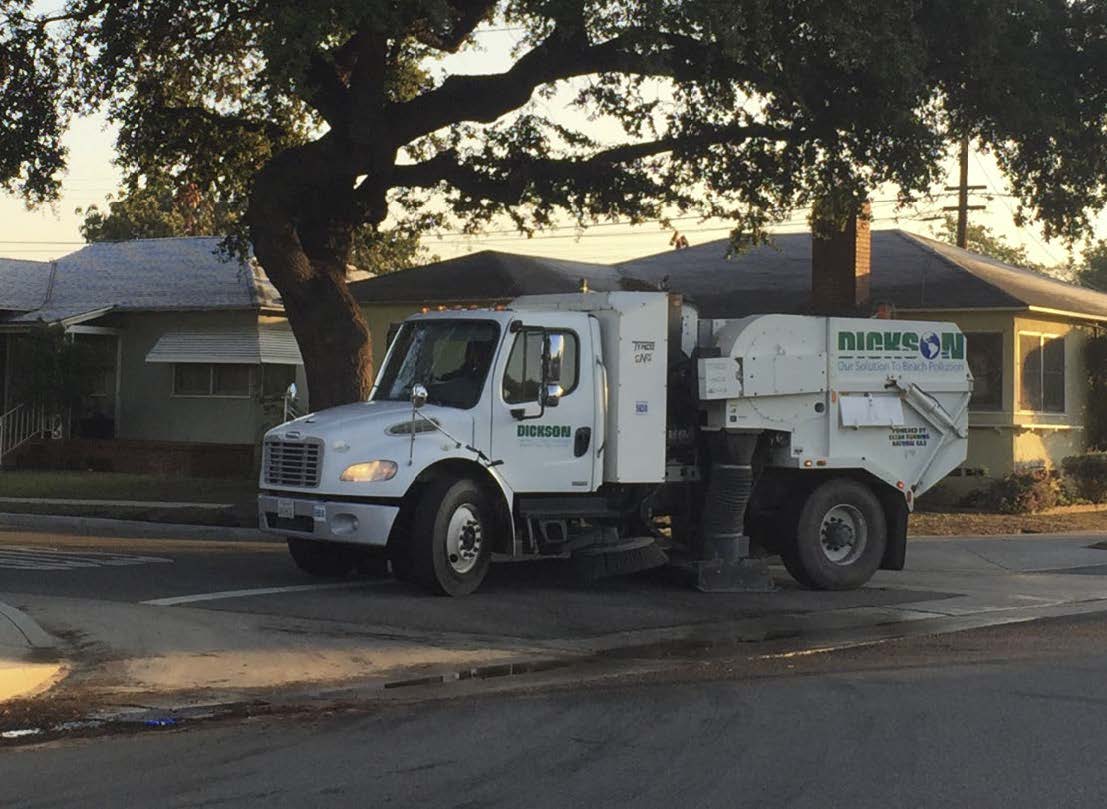
SMC study to probe effectiveness of street sweeping for reducing runoff pollution
The Southern California Stormwater Monitoring Coalition (SMC) has launched a three-year study to investigate the effectiveness of routine street sweeping in removing contaminants that enter storm drains and contribute to ... More
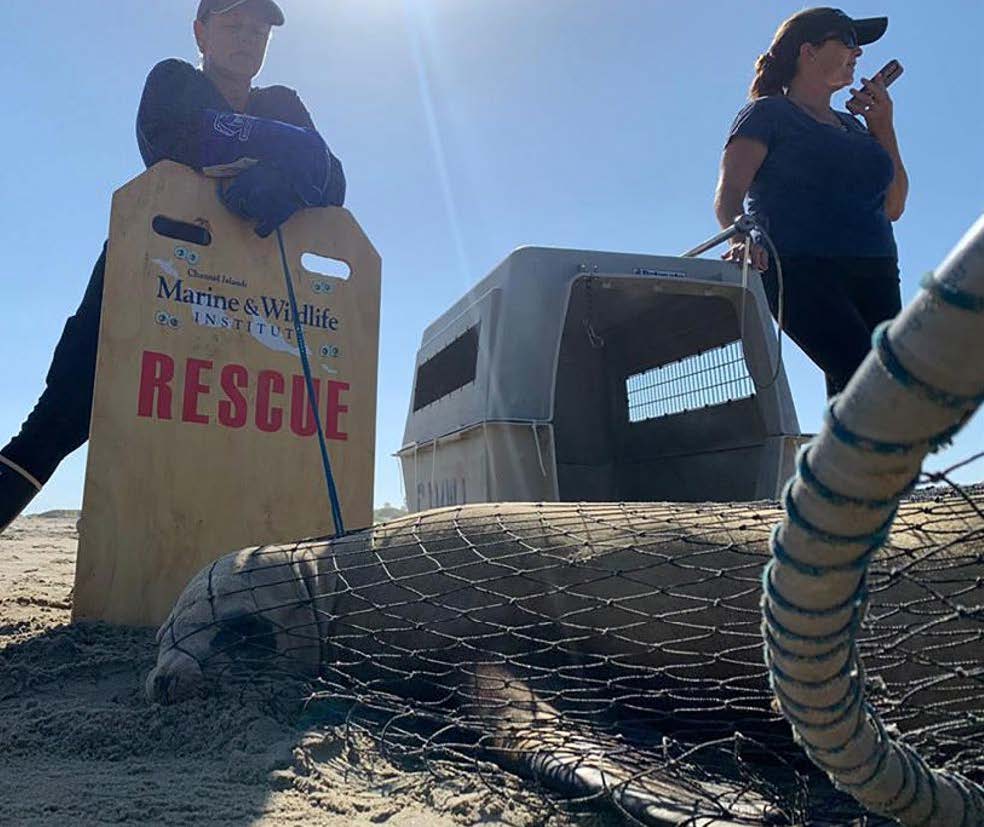
Study examines how marine mammals are affected by summer HABs toxin exposure
SCCWRP and its partners have launched a yearlong study to document the severity of a harmful algal blooms (HABs) event that sickened hundreds of sea lions and other marine mammals ... More
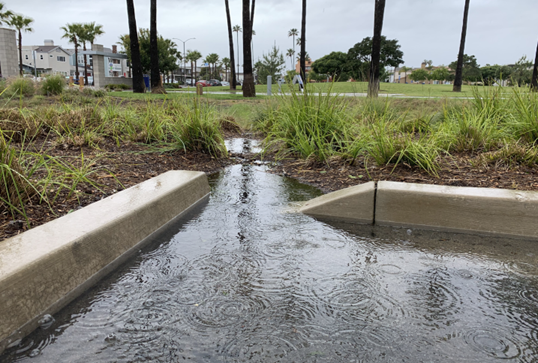
Toolkit developed for adaptive watershed management
SCCWRP and its partners have developed statewide guidance and a set of freely accessible web tools to help California stormwater managers take a consistent, standardized approach to periodically evaluating their ... More
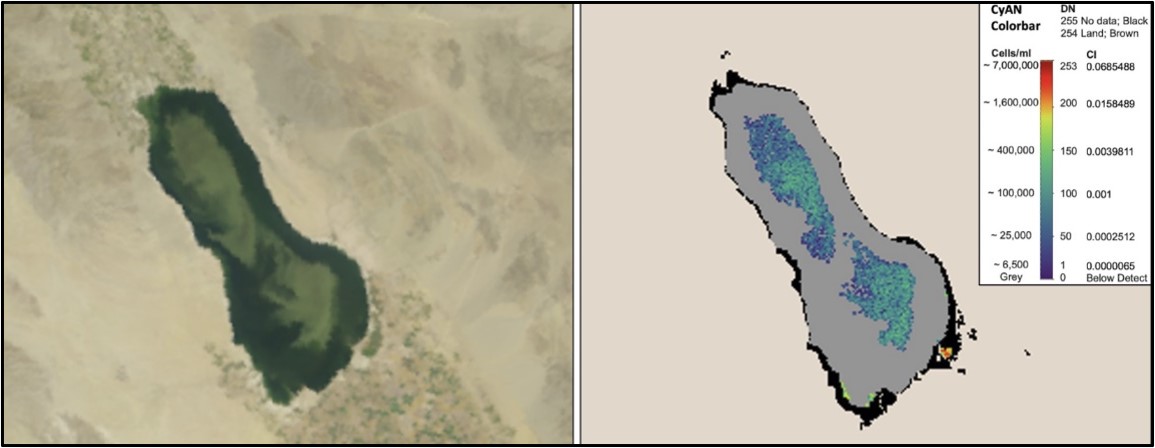
Study provides statewide picture of when, where HABs are occurring in lakes, reservoirs
SCCWRP and its partners have completed a year-long study that used satellite imaging data to build a comprehensive portrait of when and where ecologically disruptive harmful algal blooms (HABs) have ... More
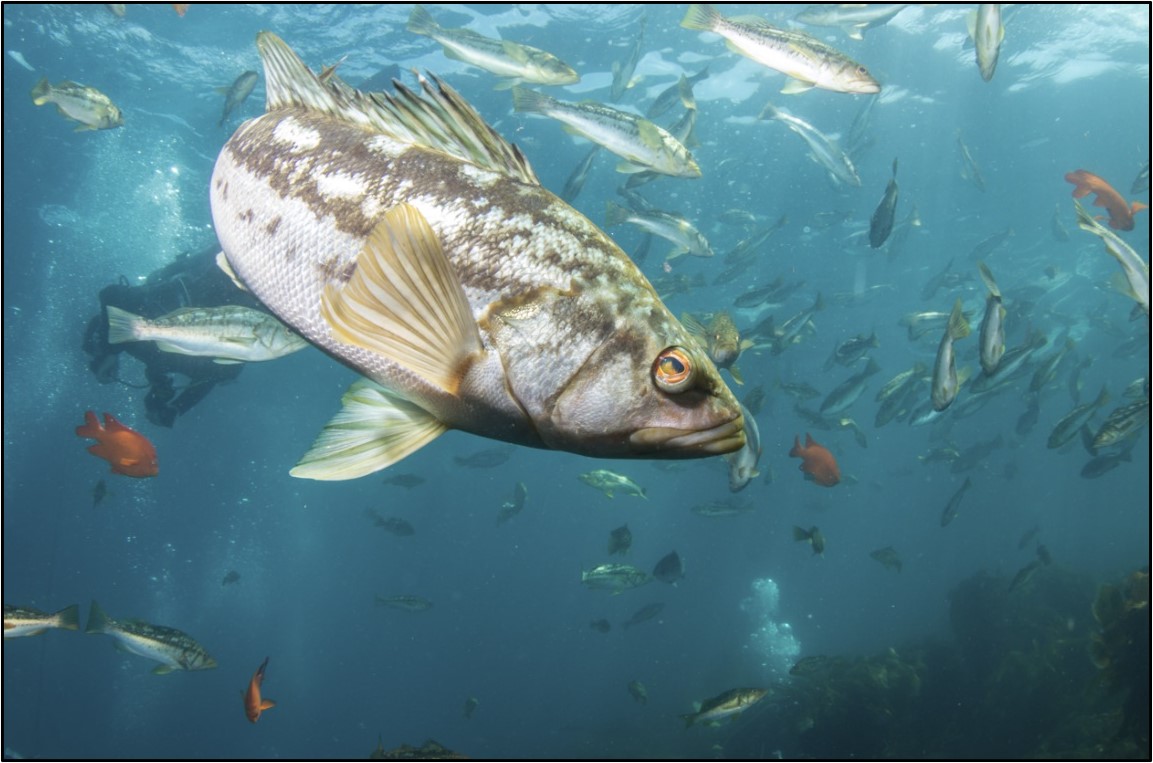
Marine eDNA decay rates to be measured to support development of DNA-based monitoring
SCCWRP and its partners have launched a three-year study to measure how rapidly the DNA that marine organisms shed into their environment decays in ocean water under different environmental conditions ... More
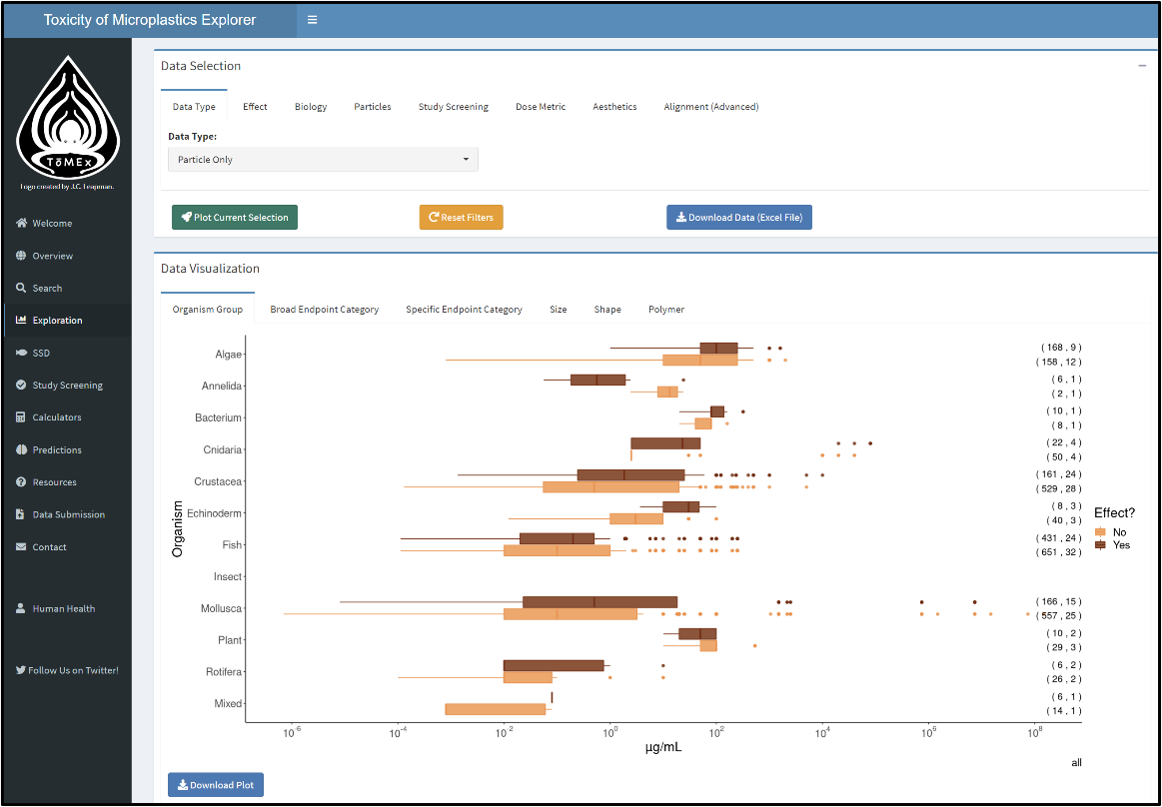
Special journal issue highlights new scientific tools to support microplastics management
An initial set of scientific products and health thresholds that could form the technical underpinnings for how California protects aquatic life and humans from exposure to microplastics pollution is featured ... More
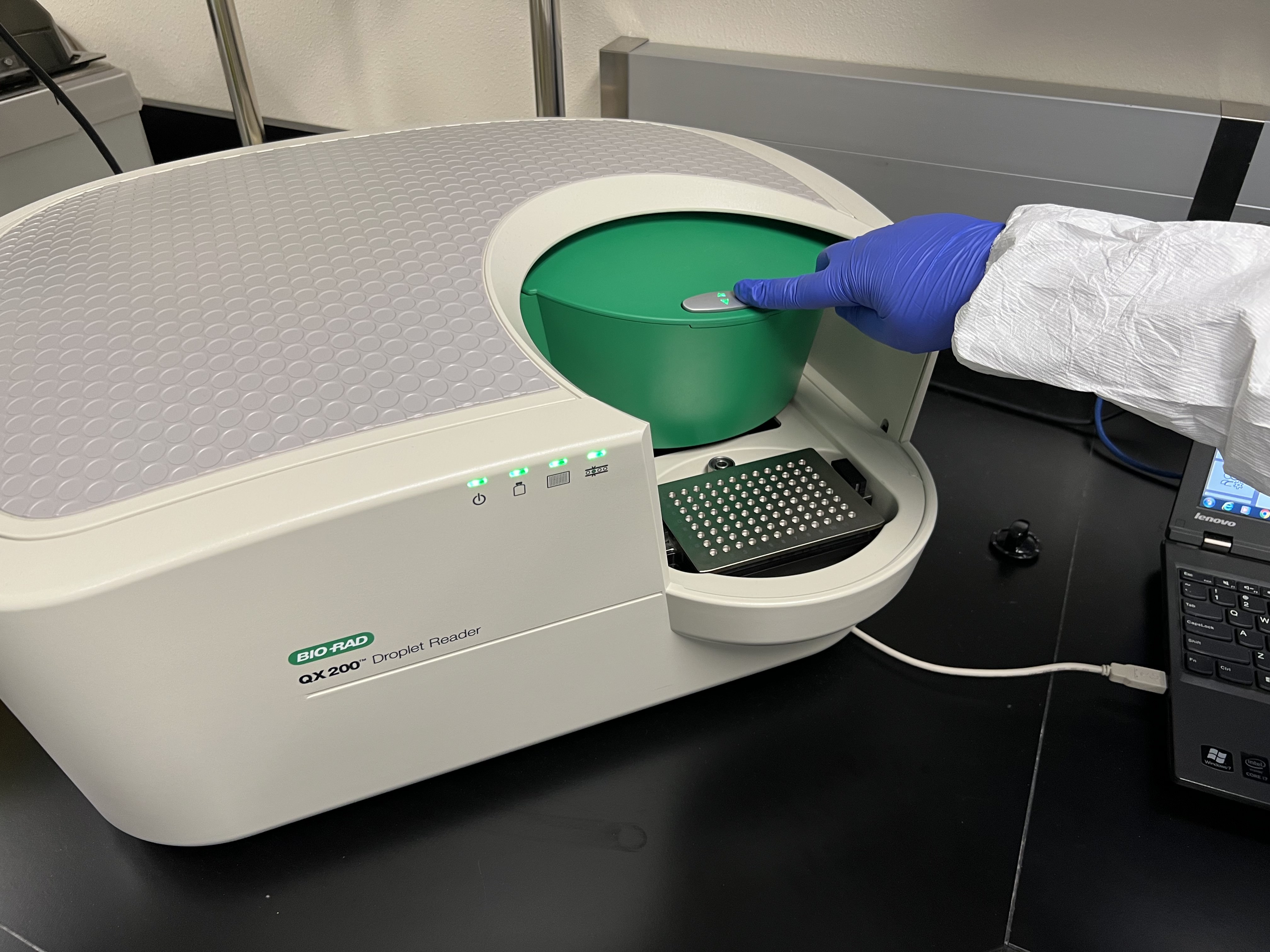
County first to monitor beach fecal pollution via ddPCR
San Diego County has become the first municipality in the nation to end its reliance on decades-old methods for monitoring fecal contamination in beach water in favor of a rapid, ... More
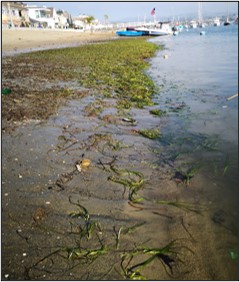
First regional survey underway to examine health of Southern California eelgrass beds
SCCWRP and its partners have launched a two-year pilot effort to assess the health of Southern California’s coastal eelgrass beds using a new, bioassessment-based monitoring approach that focuses on evaluating ... More
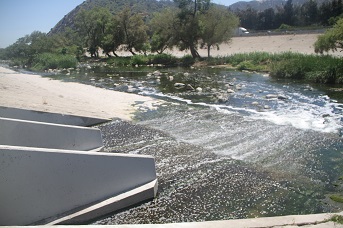
Special journal issue highlights statewide stream flow management framework
A new scientific framework intended to bring standardization and technical rigor to the process of determining environmental flow needs for California streams is prominently featured in a special issue of ... More
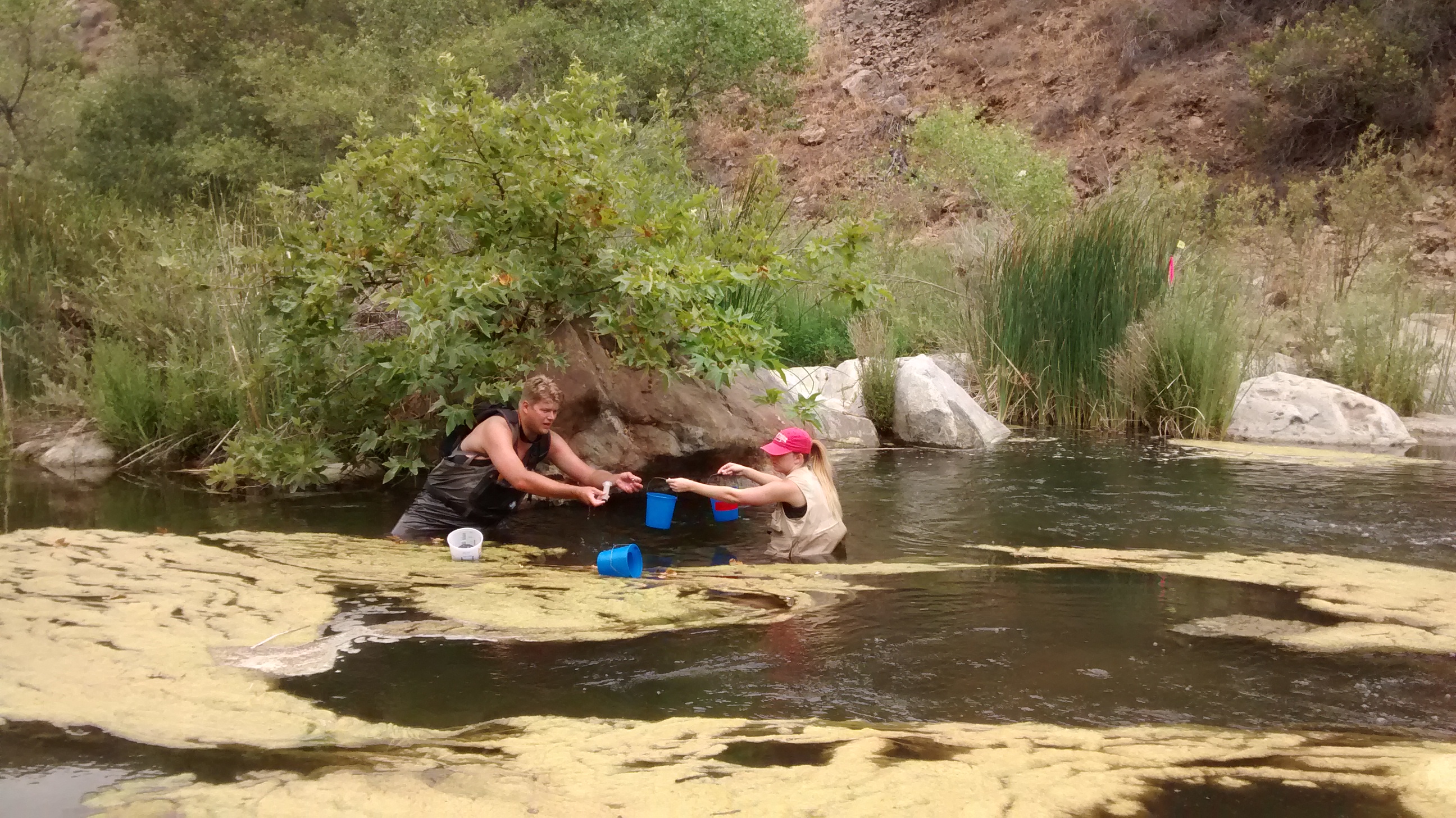
Draft science product released to support development of statewide stream policy
SCCWRP and its partners have released for public comment a draft science product that is expected to serve as the technical foundation for the State Water Board in developing a ... More
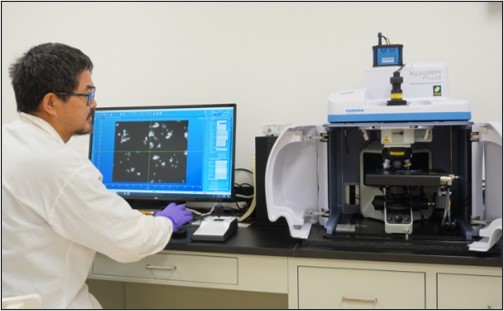
SCCWRP helps establish basis for microplastics management
A series of international SCCWRP-facilitated scientific studies and workshops over the past year examining how to better monitor and understand microplastics contamination is helping to form the scientific foundation for ... More
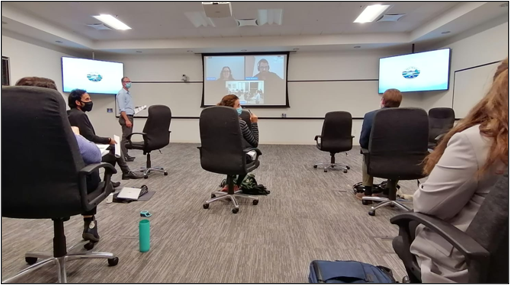
Stormwater drainage conference helps connect SCCWRP to researchers worldwide
SCCWRP hosted an international engineering conference focused on improving modeling of urban stormwater drainage systems over a three-day period in January that attracted 146 researchers and practitioners – more than ... More
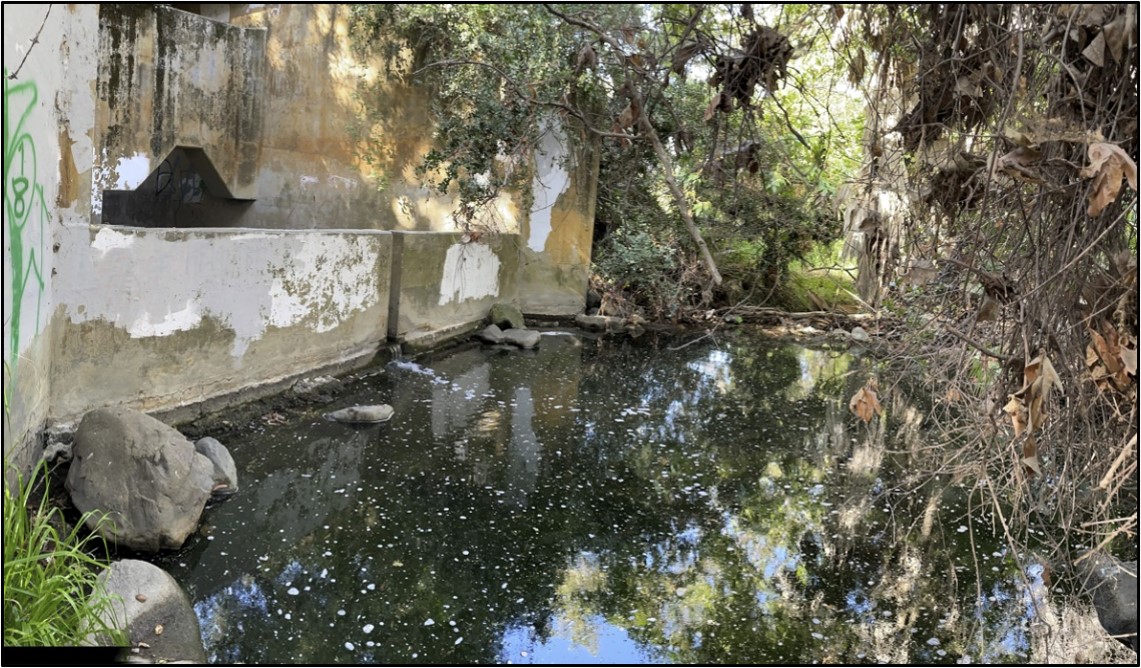
Study demonstrates how to use framework to restore more natural flows to streams
SCCWRP and its partners have completed a three-year study demonstrating how watershed managers can build a rigorous scientific foundation for integrating environmental flow considerations into their stream restoration planning efforts. ... More

Study examines climate change’s influence on eutrophication in Santa Margarita watershed
SCCWRP and its partners have completed a three-year study examining how climate change is expected to influence eutrophication in the Santa Margarita River watershed – the final piece of a ... More
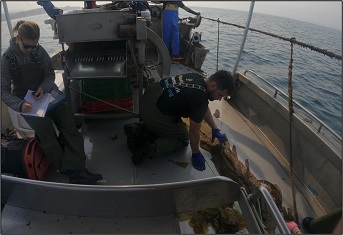
Kelp farms being studied to improve coastal water quality
SCCWRP and its partners have completed the initial phases of integrating a pair of Southern California Bight computer models to investigate how offshore kelp farms might be used to reduce ... More
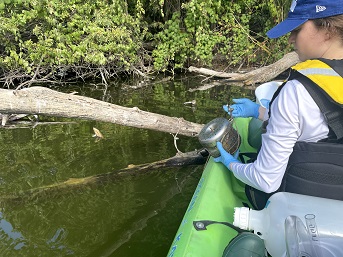
Study examines feasibility of using human cyanotoxin thresholds to protect aquatic life
SCCWRP and its partners have completed an initial investigation into whether existing cyanotoxin thresholds intended to protect the health of humans exposed to cyanotoxins in freshwater systems also could be ... More
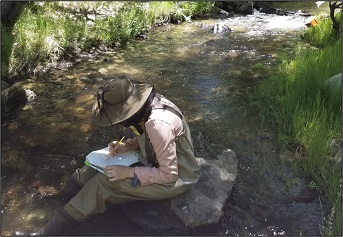
Interactive mapping tool to help managers ID causes of poor stream condition
SCCWRP and its partners are wrapping up production of an initial version of a user-friendly, web-based management tool for helping stream managers rapidly narrow down likely causes of poor stream ... More
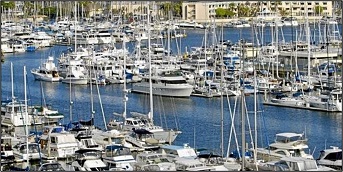
Template established for how boat harbors could modify copper regulatory targets
SCCWRP and its partners have completed a three-year study that establishes a template for how Southern California boat harbors could pursue scientifically validated modifications to default regulatory targets for dissolved ... More
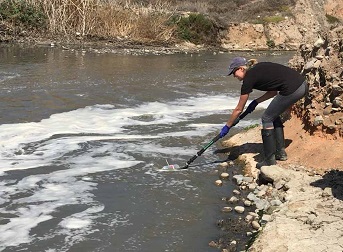
DNA-based community fingerprinting used to link Mexican sewage to U.S. beach pollution
SCCWRP and its partners have tracked sewage from a wastewater treatment plant in Mexico to south San Diego County beach water – a proof-of-concept study that illustrates the power of ... More
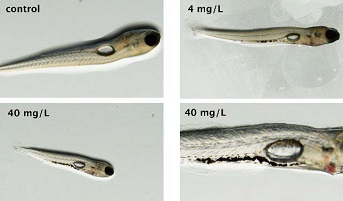
Consensus reached on how to set thresholds for aquatic life exposed to microplastics
A group of international experts on aquatic microplastics pollution has reached consensus on a recommended framework that California could use to implement health-based thresholds that explain when microplastics contamination at ... More
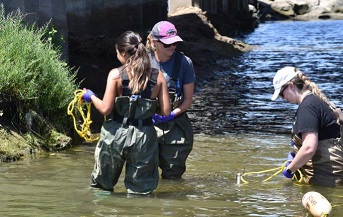
Scientific foundation established to question California shellfish water-quality objective
SCCWRP and its partners have completed a study that calls into question the appropriateness of a bacterial water-quality numeric objective designed to protect the health of people who consume shellfish ... More
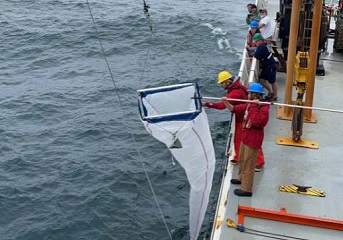
Bight partnerships to expand understanding of acidification
The Southern California Bight Regional Monitoring Program is partnering with three other West Coast marine monitoring groups this summer to produce the most comprehensive picture to date of how ocean ... More
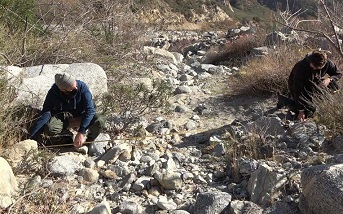
Tool released to help determine whether streams subject to Clean Water Act oversight
A SCCWRP-developed tool that can help watershed managers determine which streams the federal government has jurisdiction to regulate under the Clean Water Act has been released in beta form for ... More
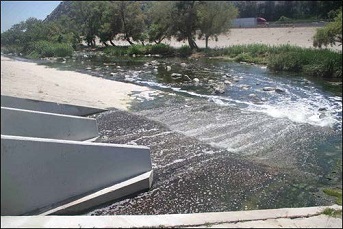
Agreement reached on process for evaluating environmental flow needs of L.A. River
A diverse coalition of water-quality managers has reached agreement on a scientific process for evaluating whether flows in the Los Angeles River can be reduced for water-recycling purposes while simultaneously ... More
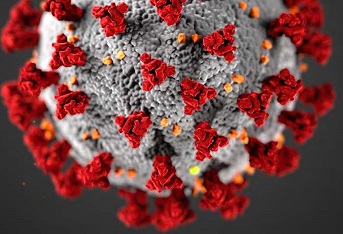
Study offers insights for measuring COVID-19 in wastewater, reducing variability
SCCWRP and its partners have developed an improved understanding of what contributes to sources of variability in methods for measuring COVID-19 virus levels in wastewater streams – key insights that ... More
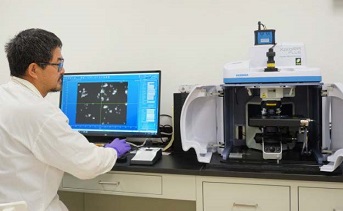
International study to inform State microplastics policy
The State Water Resources Control Board has begun working to develop a draft policy requiring microplastics to be monitored in drinking water following an international, SCCWRP-facilitated study that evaluated multiple ... More

Regional monitoring network being built to evaluate BMP performance
The Southern California Stormwater Monitoring Coalition (SMC) has begun building a regional monitoring network for tracking the performance of a wide variety of stormwater BMPs (best management practices) – a ... More

Study to probe quality-assurance issues with Ceriodaphnia toxicity test
SCCWRP has launched a two-year statewide effort to ensure that laboratories conducting a toxicity test commonly used to monitor the water quality of wastewater and stormwater discharges are producing consistently ... More

Study illustrates power of non-targeted analysis to help identify toxic chemicals
A team of researchers that includes SCCWRP has completed a high-profile, first-of-its-kind case study demonstrating how to use an analytical method known as non-targeted chemical analysis to help identify specific ... More

Bight ’18 finds local sportfish within ‘safe to eat’ thresholds
Contamination levels in the tissues of commonly caught Southern California sportfish were found to be within “safe to eat” thresholds for consumption at least once a week during the Southern ... More

Resources unveiled to boost utility, accessibility of stream bioassessment data statewide
SCCWRP has unveiled a comprehensive set of resources intended to overcome common end-user challenges associated with analyzing, accessing and interpreting stream bioassessment data – challenges that have stymied more widespread ... More

Workshop convened to develop expert consensus on microplastics health effects
SCCWRP and its partners have convened a multi-part science workshop to build international expert consensus on the health-based thresholds at which microplastics of different sizes, shapes and compositions can be ... More

Proposed statewide strategy developed to boost capacity for monitoring freshwater HABs
SCCWRP and the State Water Board have developed a proposed statewide strategy for boosting California’s capacity to monitor the growing threat posed by harmful algal blooms (HABs) in California freshwater ... More

Effort launched to quantify microfracture leaks in sewers
SCCWRP has partnered with the County of San Diego to explore how to accurately detect potential microfracture leaks in underground sewer pipes – the latest step in an ongoing, multi-year ... More
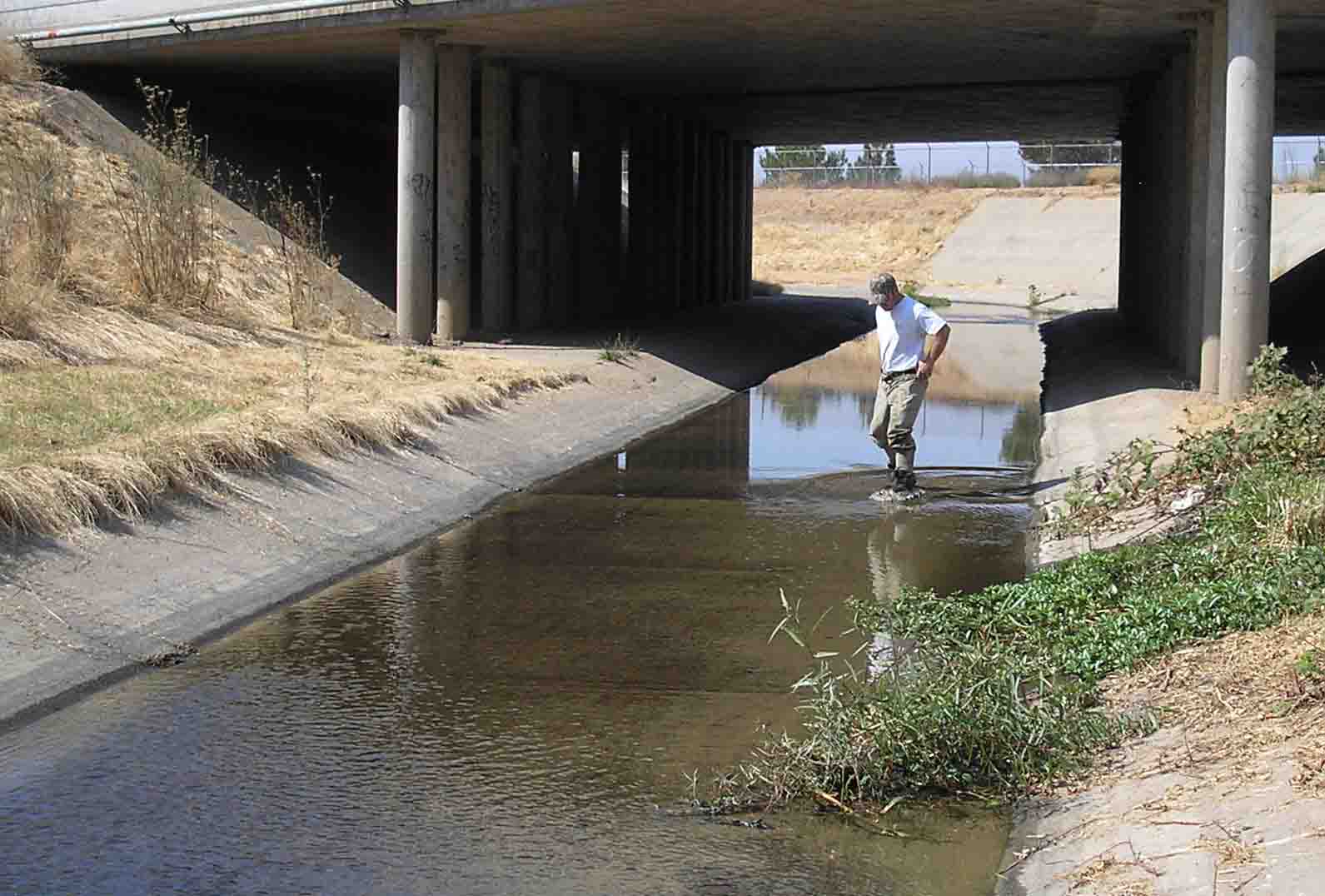
Study probing how to apply bioassessment tools to modified channels statewide
SCCWRP has launched a three-year effort to explore when and how bioassessment scoring tools should be used to evaluate the health of California streams that have been modified through channel ... More
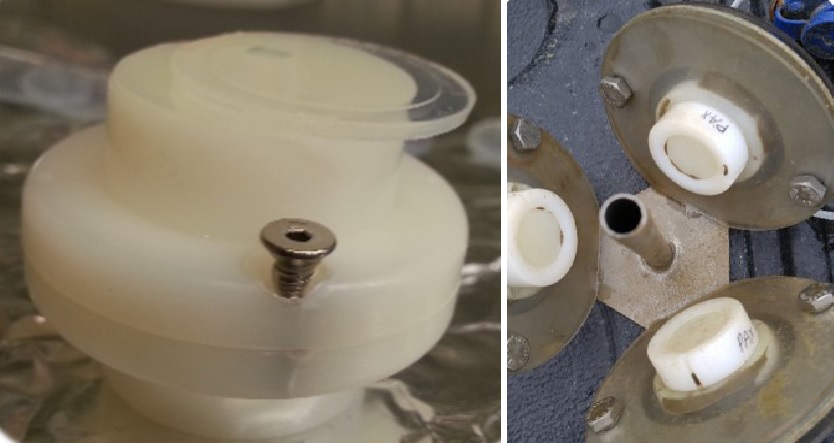
New passive sampling approach developed to measure cyanotoxins in freshwater systems
SCCWRP and its partners have shown in a proof-of-concept study that a newer, more experimental form of passive sampling technology known as o-DGT can be used reliably to measure levels ... More
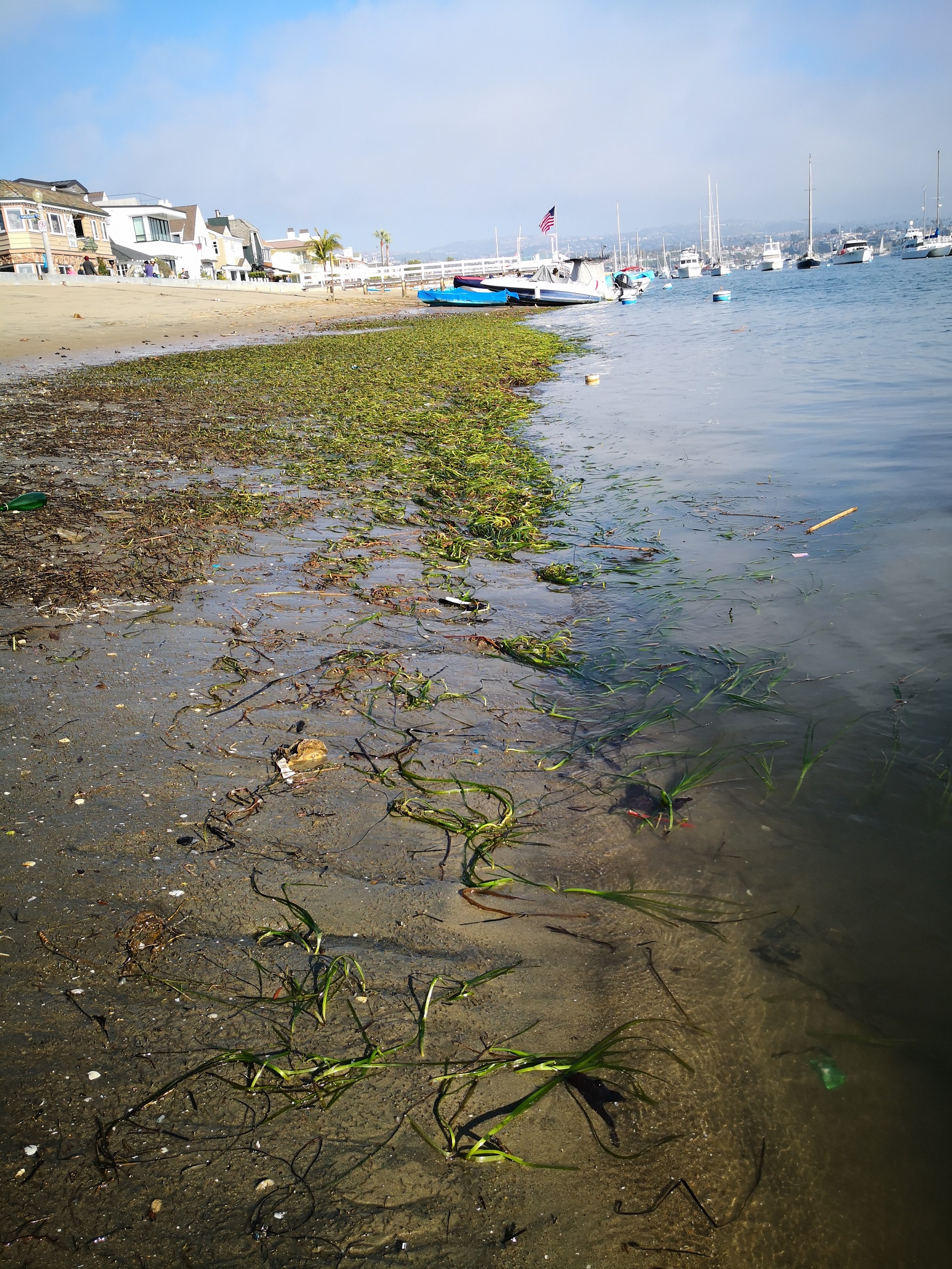
Three-tiered framework developed for assessing health of seagrass beds
SCCWRP has developed a three-tiered framework incorporating bioassessment methods to help environmental managers across coastal California comprehensively evaluate the health of eelgrass and other types of submerged aquatic vegetation (SAV). ... More
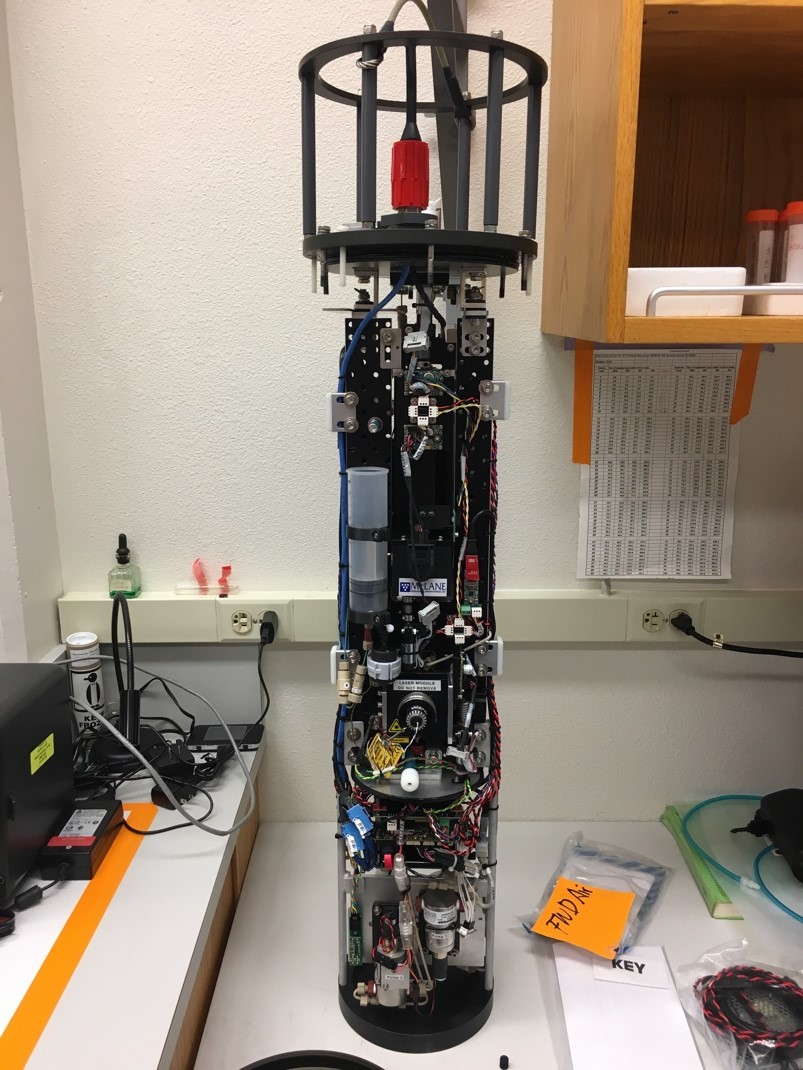
Statewide HABs early-warning system being developed
SCCWRP and its partners have launched a two-year pilot study to develop a statewide early-warning system for coastal harmful algal blooms (HABs) that relies on autonomous microscopes to alert water-quality ... More

SMC study suggests not all strategies to protect health of erosion-prone streams created equal
The Southern California Stormwater Monitoring Coalition (SMC) has completed an analysis shedding light on whether next-generation management strategies for reducing erosion risk in streams could be more effective at protecting ... More

Pilot study incorporates eDNA identification methods into routine stream monitoring
SCCWRP and its partners have shown in a proof-of-concept study that regional stream monitoring programs can be used to track endangered and invasive aquatic species using the environmental DNA – ... More

Study shows acidification triggering adverse biological impacts in Dungeness crab larvae
A three-year study examining the sensitivity of Dungeness crab larvae to ocean acidification along the U.S. West Coast has found that this commercially important species already is being adversely impacted ... More
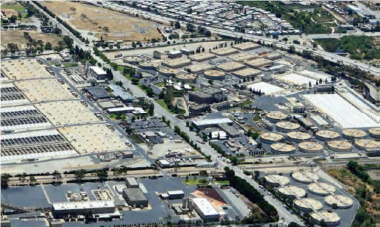
Wastewater being used to track COVID-19 infections
A national research team that includes SCCWRP has begun investigating how wastewater influent could be used to monitor the prevalence of COVID-19 infections in communities in near real time. The ... More
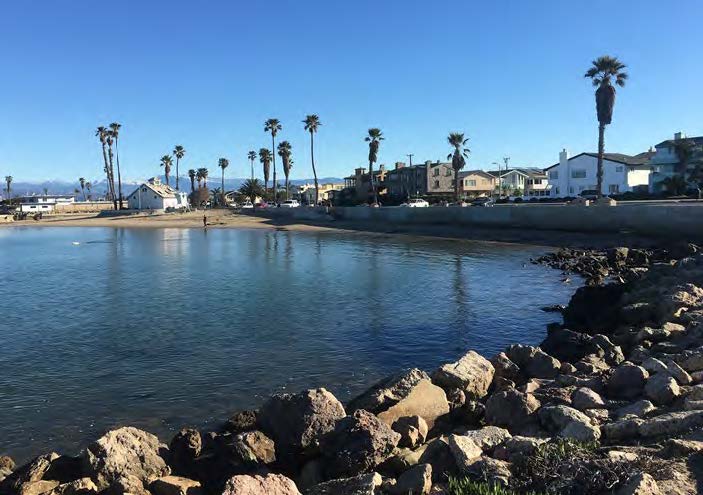
Non-targeted analysis to be tested in Ventura County source tracking study
SCCWRP has launched a study with Ventura County exploring how the unique chemical patterns inside storm drains might be used to identify and track sources of human fecal contamination in ... More
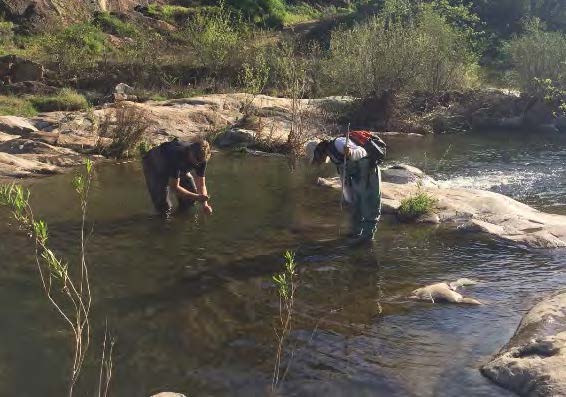
DNA-based methods for identifying algae shown to be reliable, possibly more insightful
SCCWRP and its partners have shown in a proof-of-concept study that using DNA methods to conduct algae-based assessments of stream health offers a reliable, cost-effective alternative to traditional biological assessment ... More
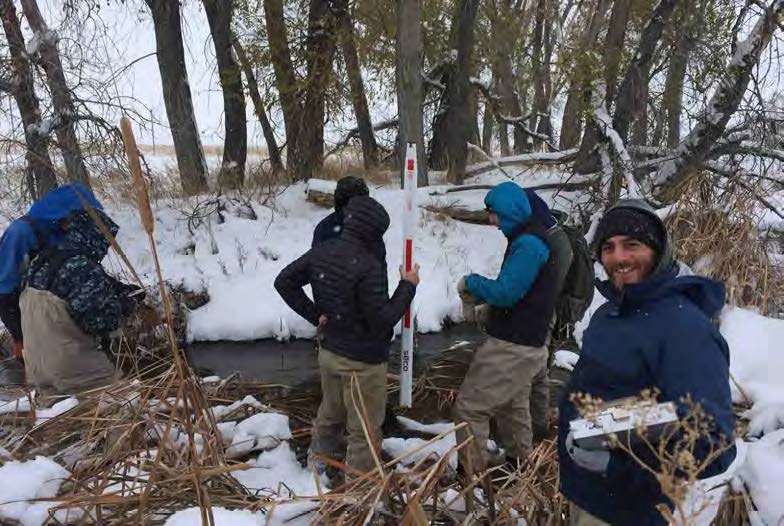
Flow duration tool providing foundation for change in federal oversight of streams
A SCCWRP-developed approach for determining the flow duration patterns of streams in the U.S. Southwest is serving as the technical centerpiece in an ongoing effort to change how the federal ... More
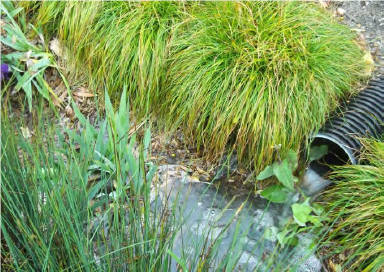
SMC develops roadmap to improve runoff water quality
The Southern California Stormwater Monitoring Coalition (SMC) has unveiled a comprehensive, multi-faceted research agenda that lays out a vision and roadmap for how the region’s stormwater management community will collaborate ... More

SCCWRP reflects on progress, achievements over 50 years
SCCWRP celebrated its 50th anniversary in October with a special program at the Aquarium of the Pacific in Long Beach that highlighted the agency’s progress and achievements over the past ... More
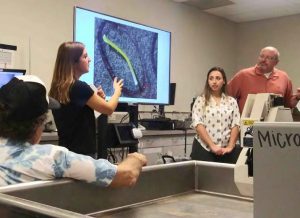
International study kicks off to standardize microplastics monitoring methods
SCCWRP and its partners have launched an international study to develop standardized methods for measuring microplastic particles in aquatic environments, an effort that has the potential to improve the accuracy ... More
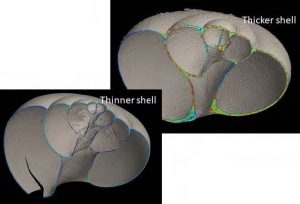
Study underscores complexity of predicting acidification’s impacts on marine organisms
SCCWRP and its partners have completed a three-year study examining the vulnerability of fisheries in the world’s polar regions to ocean acidification (OA) – an analysis that has illuminated the ... More
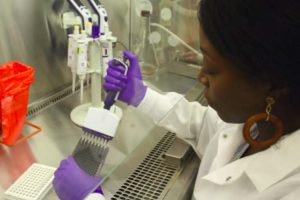
Guidance prepared on how to use bioanalytical assays to screen for contaminants
SCCWRP has partnered with the National Water Research Institute (NWRI) to co-author guidance for California’s water recycling community on how to incorporate bioanalytical screening technology into routine water-quality monitoring. The ... More
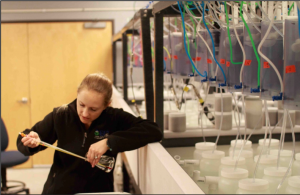
Dynamic exposure lab built to replicate fluctuating environmental conditions
SCCWRP has constructed a state-of-the-art dynamic exposure laboratory to study how aquatic organisms respond to fluctuations in pH, dissolved oxygen and other environmental parameters in a controlled setting – a ... More
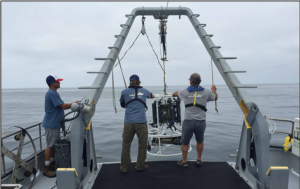
Modeling shows nutrient discharges can influence coastal acidification, hypoxia
A computer modeling initiative to understand how Southern California’s coastal ocean will be affected by ocean acidification and hypoxia has shown that land-based sources of nutrients can have a measurable ... More
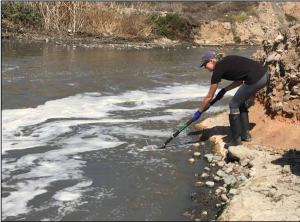
Ocean currents model to be evaluated as part of study examining Tijuana pollution flows
SCCWRP and its partners will use field data from an ongoing study tracking persistent fecal contamination at Imperial Beach near the U.S.-Mexico border to evaluate a computer model that predicts ... More
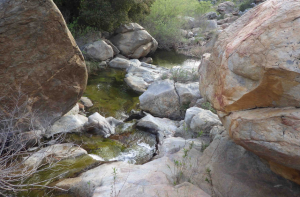
Three key stream condition indicators integrated via index
The Southern California Stormwater Monitoring Coalition (SMC) and SCCWRP have developed a new assessment tool that synthesizes three key lines of evidence about the ecological health of wadeable streams to ... More
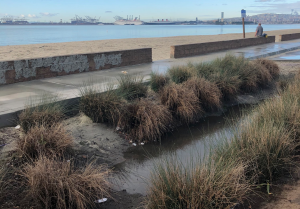
Tool developed to assess BMP performance effectiveness
SCCWRP has developed an integrated web-based tool intended to help California’s stormwater management community assess the effectiveness of vegetated swales, permeable pavement and other best management practices (BMPs) in removing ... More
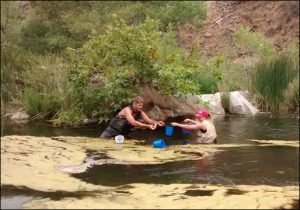
Science products endorsed as foundation for crafting statewide stream policy
An expert scientific panel has endorsed a set of draft science products developed by SCCWRP as a strong technical foundation for crafting a State Water Board policy intended to better ... More
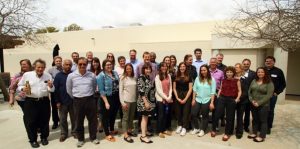
International microplastics measurement study being developed following 2-day workshop
A group of international experts on aquatic microplastic pollution that convened at SCCWRP for a two-day workshop in April has begun laying the groundwork to build scientific consensus around methods ... More
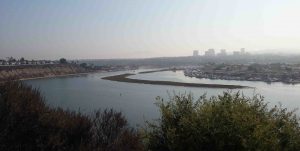
Newport Bay study to examine scientific basis for shellfish water-quality standard
SCCWRP and its partners will launch a study in May evaluating whether a water-quality standard designed to protect the health of people who consume shellfish from Newport Bay in Orange ... More
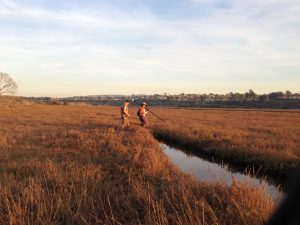
Report outlines strategy for protecting coastal wetlands
Coastal resources managers have an opportunity to increase the total size of Southern California’s coastal wetlands in the coming decades even as rising sea levels permanently submerge existing wetland areas, ... More
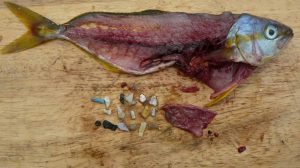
Science workshop to jump-start planning for microplastics monitoring in California
Leading international experts on aquatic microplastic pollution will convene at SCCWRP this spring to begin exploring how California could monitor microplastic particles in drinking water and the coastal ocean, a ... More
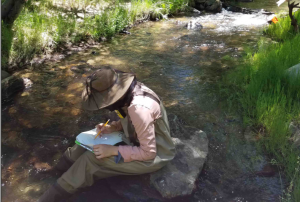
New modeling tool to help speed up causal assessment work
SCCWRP and its partners have developed a statistical modeling tool for conducting causal assessments that could help shave a year or more off the time required to narrow down potential ... More
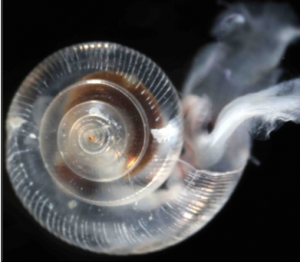
Puget Sound study shows coastal estuaries could be impacted by acidification
SCCWRP and its partners have shown in a set of preliminary analyses of Washington’s Puget Sound that coastal estuary environments have the potential to be impacted by ocean acidification (OA) ... More
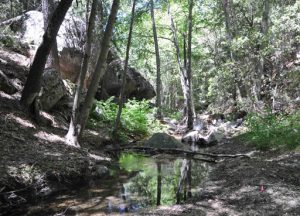
Scoring tool developed to quantify habitat condition
SCCWRP and its partners have developed a statewide scoring tool for quantifying the condition of a stream’s physical habitat, enabling watershed managers for the first time to readily interpret and ... More

Science tools for proposed stream biointegrity-biostimulatory policy released in draft form
The State Water Board has published draft versions of a suite of technical reports, journal manuscripts and tools co-authored by SCCWRP that will serve as the technical foundation for the ... More
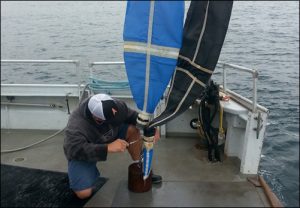
New workgroup to standardize DNA-based methods for routine aquatic monitoring
The California Water Quality Monitoring Council has formed a statewide workgroup to be led by SCCWRP that will examine how to bring greater consistency and standardization to DNA-based analysis methods ... More
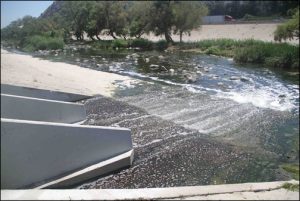
Environmental flows study to determine impacts of diverting discharges from L.A. River
Water-quality managers that work in the Los Angeles River watershed have initiated a two-year study to determine the potential ecological and recreational effects of diverting treated wastewater effluent and runoff ... More
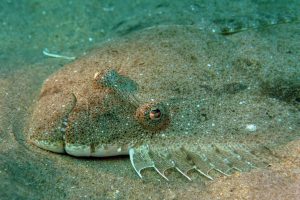
Framework approved to assess sediment’s impacts on humans
The State Water Board has approved a standardized sediment assessment framework intended to better protect the health of humans who consume seafood caught in California’s enclosed bays and estuaries, the ... More
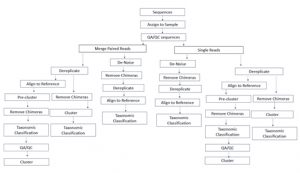
Study sheds light on how to improve DNA sequencing analysis methods to ID organisms
SCCWRP and its partners have completed a two-year study shedding light on best-practices approaches for analyzing raw DNA sequencing data to identify the organisms present in an environmental sample, the ... More
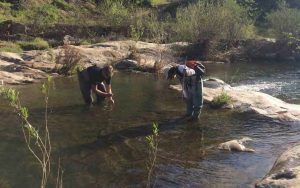
Stream food webs to be examined in study to better integrate stream assessment tools
SCCWRP and its partners have launched a three-year effort to better integrate stream condition assessment tools in California by examining how ecological stress alters the complexity and interconnectedness of stream ... More
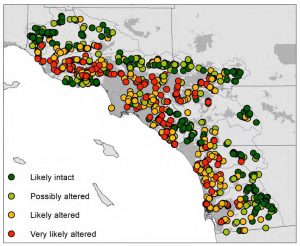
Management impacts of stream biointegrity policies explored in new SMC report
The Southern California Stormwater Monitoring Coalition (SMC) has released a comprehensive new report chronicling how the region’s stream management community will potentially be impacted by new and proposed changes to ... More
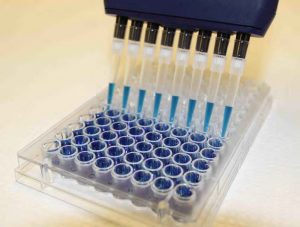
Bight ’18 keeps focus on key issues of management concern
More than 80 environmental agencies will examine new and emerging developments in water-quality science and management during the 2018 cycle of the Southern California Bight Regional Monitoring Program, which initiates ... More
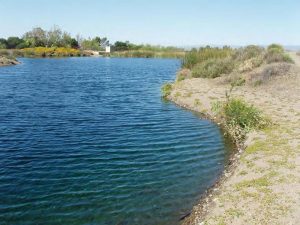
CEC panel informs proposed update to recycled water policy
The State Water Board will consider updating California’s policy on monitoring contaminants of emerging concern (CECs) in recycled water as early as this year based on the findings of an ... More
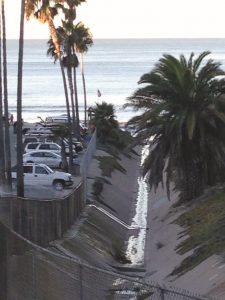
Microbes in sewer pipes to be studied to glean insights about origins of fecal contamination
SCCWRP and its partners have launched a study investigating whether the microbial community that grows inside sanitary sewer pipes could provide insights into the origins of human fecal contamination found ... More
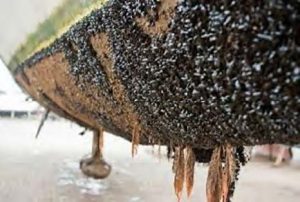
Study launched to revisit copper TMDL for Marina del Rey Harbor
SCCWRP has launched a two-year study examining whether existing regulatory targets for dissolved copper in Marina del Rey Harbor should be modified to more accurately reflect the ecological threat posed ... More
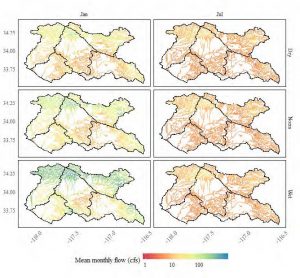
Technical foundation created for ephemeral stream tools
SCCWRP and its partners have completed a pair of studies that establish a technical foundation for building watershed management tools for Southern California streams that run dry for much of ... More
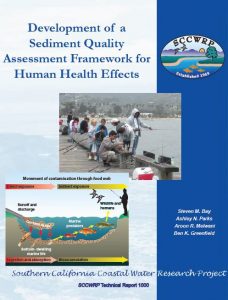
Draft framework unveiled for assessing human health impacts of contaminated sediment
SCCWRP and its partners have completed development of a standardized sediment assessment framework intended to better protect the health of humans who consume seafood caught in enclosed bays and estuaries ... More
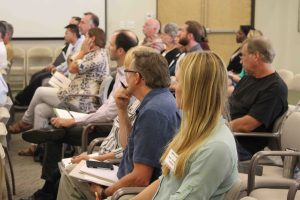
Bight ’18 kickoff brings together dozens of agencies
A collaboration involving dozens of environmental organizations will examine how human activities have affected the ecological health of Southern California’s coastal waters during the sixth cycle of the Southern California ... More
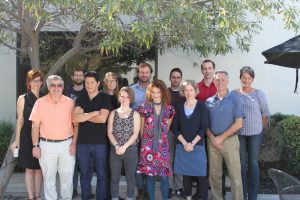
International expert panel convened to develop acidification thresholds for pteropods
A 10-member panel made up of leading global experts on pteropods, or sea snails, convened at SCCWRP in September to develop consensus around biologically relevant thresholds at which these ubiquitous ... More
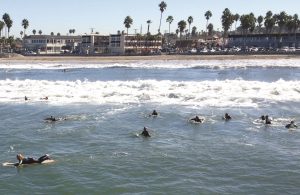
Accuracy of QMRA health risk modeling approach validated with epidemiology data
SCCWRP and its partners have shown that a health risk modeling approach known as Quantitative Microbial Risk Assessment (QMRA) can be used to accurately estimate illness rates for beachgoers who ... More
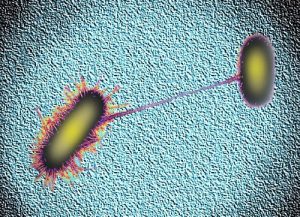
POTWs embark on study documenting antibiotic-resistant bacteria, genes in effluent
SCCWRP and its four wastewater treatment member agencies have initiated a year-long study examining whether viable antibiotic-resistant bacteria – and the genes that code for antibiotic resistance – are being ... More
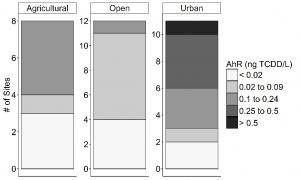
Bioassays show promise for CEC screening in SMC study
SCCWRP and its partners have demonstrated in a proof-of-concept study that commercially available bioanalytical tools have the potential to cost-effectively screen Southern California waterways for the presence of bioactive contaminants ... More
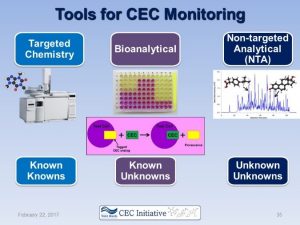
SCCWRP-developed CEC monitoring framework highlighted at State Water Board meeting
State Water Board members explored multiple approaches being taken to improve CEC monitoring statewide during an informational meeting agenda item in February. Some of the presentations they heard at the ... More
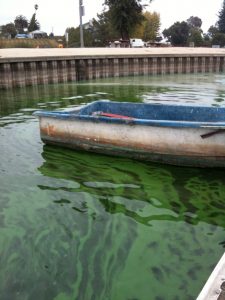
EPA workshop focuses on science-informed solutions for managing HABs
About 150 water-quality managers from across the nation discussed the state of knowledge about harmful algal blooms (HABs) and best-practices solutions and strategies for combatting them during a management-focused workshop ... More
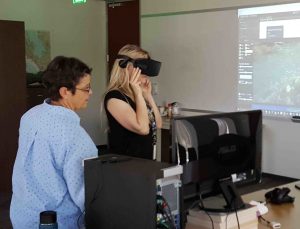
SCCWRP research featured at S.D. Regional Board workshop on monitoring technologies
Next-generation environmental monitoring technologies being developed by SCCWRP and its research partners were featured at an April workshop hosted by the San Diego Regional Water Quality Control Board that focused ... More
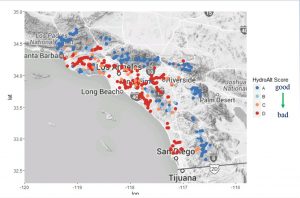
New stream flow targets aid in watershed planning decisions
SCCWRP and its partners have published a comprehensive study outlining how to use a suite of newly developed flow-ecology modeling tools to optimally protect the in-stream biological communities of more ... More
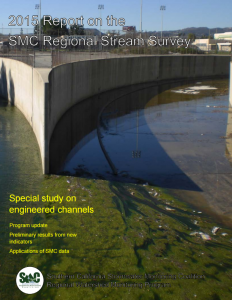
SMC completes analysis of bioassessment scores for engineered channels
The Southern California Stormwater Monitoring Coalition has completed a comprehensive analysis of the range of ecological condition scores obtained when engineered channels across coastal Southern California are scored using existing ... More
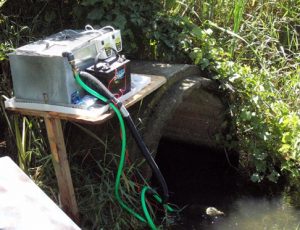
Flow-through units being deployed along L.A. River to study CECs’ impacts on fish
SCCWRP and its partners will expose fish to flowing Los Angeles River water in real time this spring as part of an on-site study examining potential biological impacts to fish ... More
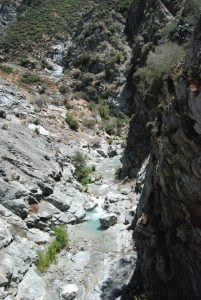
Experts create gradient for interpreting stream scores
A 16-member expert panel convened to interpret bioassessment scores for wadeable streams statewide has reached consensus on how the scores correspond to various ranges of ecological condition. The Biological Condition ... More
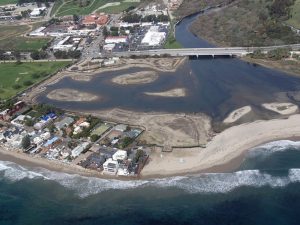
Workshop highlights need for improved science to manage ‘climate-ready’ bar-built estuaries
SCCWRP in September helped kick-start a wide-ranging discussion with California water-quality and natural resource managers about how to more effectively manage a common type of coastal estuary known as a ... More
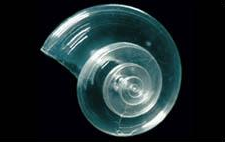
Scientists, managers lay foundation for developing acidification criteria at workshop
Scientists and coastal managers from across the West Coast began laying the groundwork for the development of ecologically relevant criteria for coastal ocean acidification during a two-day workshop in October ... More
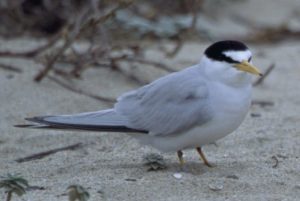
Bioaccumulation study informs health risks from sediment
SCCWRP and its partners have completed a comprehensive investigation into how sediment contamination is transferred through Southern California marine food webs, a study that has enabled scientists to close key ... More
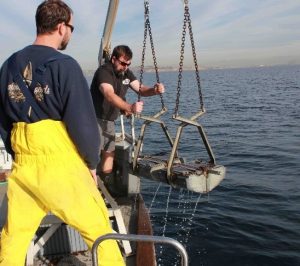
Bight ’13 regional monitoring wrapping up major elements
Three of the five elements of the Southern California Bight 2013 Regional Monitoring Program are winding down as a series of final assessment reports is published over the next few weeks. ... More
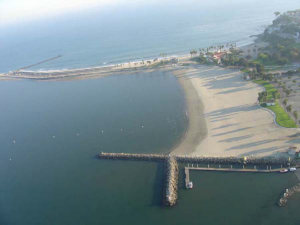
SCCWRP to test new EPA health risk model at Inner Cabrillo Beach
SCCWRP in May will launch a first-of-its-kind study aimed at ascertaining whether high fecal indicator bacteria Ievels at Inner Cabrillo Beach in the Los Angeles Harbor area are indicative of ... More
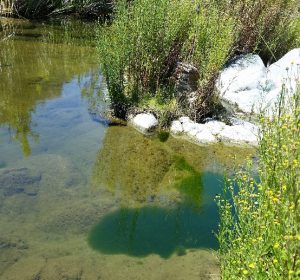
Expert panel evaluates SCCWRP nutrient science plan
A four-member expert review panel tasked with reviewing a science plan supporting the State Water Board’s effort to develop nutrient objectives for California wadeable streams has concluded that SCCWRP’s approach ... More
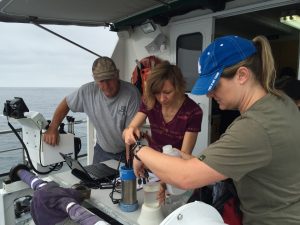
XPRIZE-developed pH sensors being tested as Bight profilers
SCCWRP and its four POTW member agencies have kicked off a year-long effort to evaluate whether ocean pH monitoring instruments developed through an international XPRIZE competition can be used effectively ... More
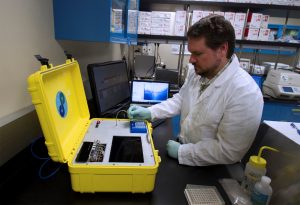
SCCWRP to test suitcase-sized microbial detection device
A suitcase-sized instrument that could revolutionize the speed at which beach ocean water is tested for microbial contamination is being prepared for an initial round of testing and calibration at ... More
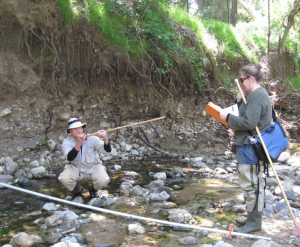
SCCWRP models flow patterns at 850 stream sites for ELOHA study
SCCWRP in October finished modeling hydrological flow patterns for about 850 ungaged bioassessment stream sites across Southern California, a milestone in a three-year project that aims to use a scientific ... More

Scientists to track El Niño’s physical impacts to coastal lagoons this winter
To better understand how sea level rise may impact Southern California’s vulnerable coastal lagoons, SCCWRP is launching a study this month to observe how predicted El Niño-fueled storm surges this ... More
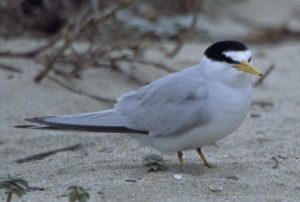
Massive 3-year sampling effort for San Diego Bay bioaccumulation study wraps up
Scientists have finished collecting and analyzing more than 260 animal samples from San Diego Bay in one of the most comprehensive Southern California investigations ever conducted into how contamination is transferred ... More

Panel proposes reforms to ELAP following review
A five-member advisory panel convened by SCCWRP to evaluate the state’s Environmental Laboratory Accreditation Program (ELAP) has published a report outlining its Year 1 findings and recommendations, the culmination of ... More
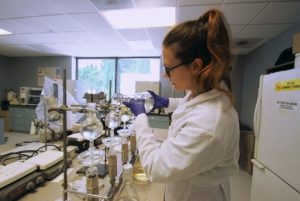
Pilot study launched to test SCCWRP’s new CEC monitoring framework statewide
SCCWRP has launched a three-year pilot study to evaluate its newly developed CEC monitoring framework across Southern California watersheds, an effort to understand how to effectively apply the framework to ... More

HAB experts develop statewide strategy for responding to toxic cyanobacterial blooms
A group of scientific experts on harmful algal blooms in California has developed a statewide strategy for responding to HABs and mitigating their impacts in water bodies across California. The ... More
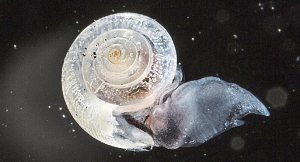
Expert panel urges action on West Coast ocean acidification
Global carbon dioxide emissions are triggering fundamental changes to ocean chemistry along the North American West Coast that should be addressed through immediate and decisive management actions, including development of ... More
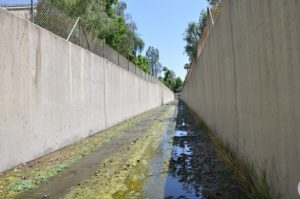
Stream survey tracks biological degradation across Southern California
A five-year monitoring study of Southern California’s perennial wadeable streams has found that 75% of the region’s 4,300 miles of streams are degraded, with no discernable improvements in the health ... More